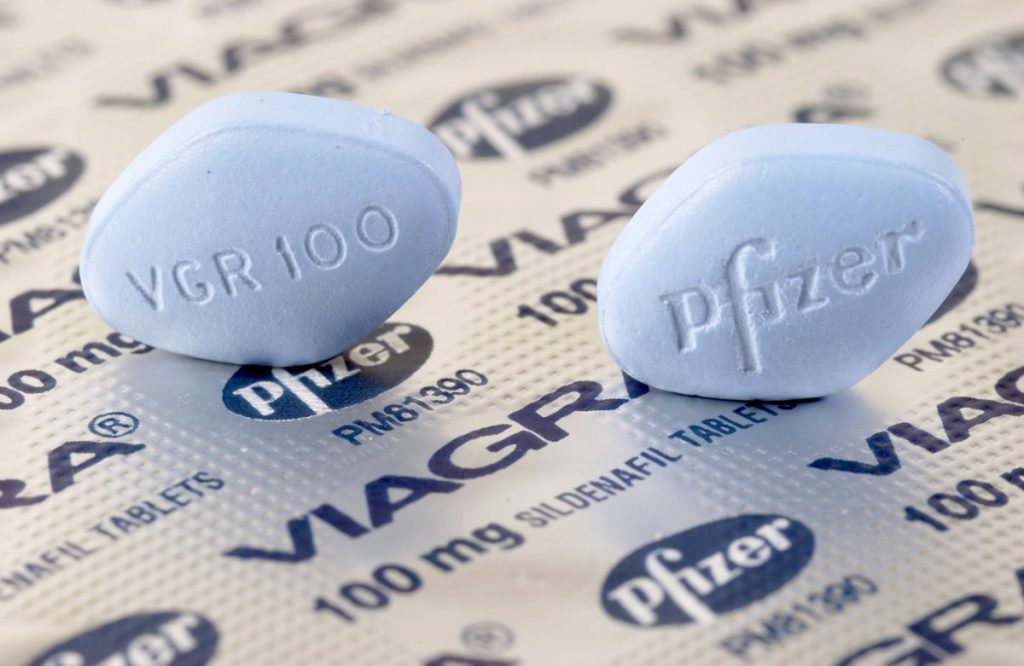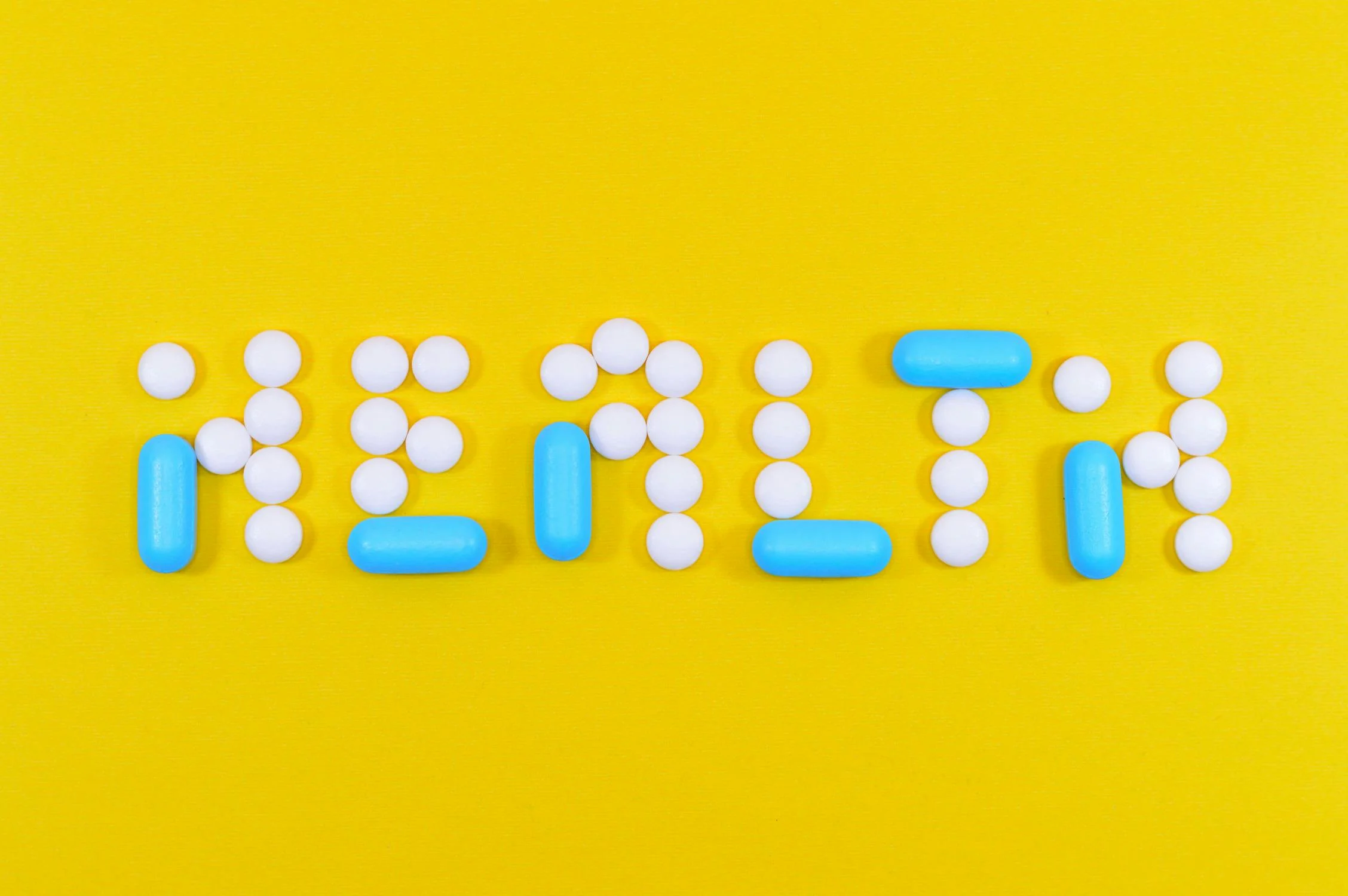Erectile dysfunction (ED) occurs when a person struggles to get or maintain an erection strong enough for satisfying sex. If you experience ED, you’re not alone—erectile dysfunction affects 30-50 million people in the US. And if you experience ED, you’re also probably aware that stressing about the problem doesn’t help. If you’ve been prescribed Viagra (active ingredient: sildenafil), you can rest assured that the effects of your medication will usually last around 4–5 hours. However, Viagra isn’t a one-size-fits-all solution to erectile dysfunction. Several factors, like your weight, lifestyle, and health, determine how long Viagra will last for you.
Continue reading to learn more about the timing of this effective drug.

How long does Viagra last?
It’s important to remember that you won’t have an erection the entire time your medication is effective. An erection lasting 4 hours or longer is a dangerous side effect called priapism that requires immediate medical attention. Viagra’s active ingredient, sildenafil citrate, is a PDE5 inhibitor that relaxes muscles in the penis and improves blood flow, resulting in stronger, longer-lasting erections when you become aroused. It’s not required—or healthy—to have an erection the entire time Viagra is in your system. Remember, Viagra requires sexual arousal to take effect and won’t cause an erection spontaneously.
Viagra can stay active in your system for up to 4–5 hours, depending on several factors. The effects of Viagra typically peak between 30 and 120 minutes after taking the pill (usually around 60 minutes). For this reason, healthcare providers suggest that you take Viagra 30–60 minutes before having sex for the best results. However, you can take Viagra up to 4 hours before intercourse. While the medication may remain in your body for more than 4 hours, the concentration will likely be too low to have a significant effect. You shouldn’t take Viagra more than once daily, so timing is crucial.
Many factors impact how long Viagra will last for you, including your dosage, other medications or supplements you take, your age, diet, overall health, and psychological state.
Factors that determine how long Viagra will last for you
Viagra doesn’t work exactly the same for everyone, so you may wonder, how long will Viagra last for me? The duration of Viagra’s effects in your system depends on several factors, including the following:
1. Mental Health
Feeling depressed, anxious, or stressed about your sexual performance can lead to a vicious cycle—stress about your ability to get an erection will impact how your body responds to arousal, making it harder for you to get an erection. Practicing stress-management techniques like deep breathing and considering an appointment with a mental health provider to learn how to control anxiety can improve your sexual experience. While Viagra could help, addressing any underlying mental health issues is essential.
2. Diet
The food you eat (and when you eat it) contributes to the efficacy of your Viagra and the overall quality of your erections. To get the most out of your medication, avoid taking Viagra after eating high-fat meals, processed foods, fatty meats, meals heavy in butter or cream, and cheeses. A stomach full of fatty foods can delay how long it takes to feel the effects of Viagra. Instead, opt for heart-healthy foods that improve circulation, like lean meat, nuts, leafy greens, and foods high in omega-3s, like oysters. Remember, it’s important your blood vessels are healthy in order for you to have erections strong enough for sex. Food that is beneficial for your cardiovascular health will help with better erections overall.
3. Exercise
Research shows that introducing exercise into your lifestyle can help decrease ED, especially for men with less-than-ideal cardiovascular health. In one study, participants who exercised 160 minutes weekly for 6 months experienced improved erectile function. Good cardiovascular health is crucial for preserving erectile function, and making sure your blood vessels are healthy is one great way to ensure Viagra keeps working for you.
4. Other Factors Like Age or Medication Interactions
As you age, your metabolism slows, which means the effects of Viagra may last longer the older you are. Viagra is proven to be safe and effective for older adults, so age doesn’t have to stand between you and a satisfying sex life. However, certain medications may interact dangerously with Viagra. These medications include nitrates, ritonavir, and some medications used to treat an enlarged prostate. Be sure to inform your healthcare provider of any medications or supplements you take before using Viagra.
How to get the most out of Viagra
Timing is essential when it comes to taking Viagra. Ideally, you should take Viagra about 30–60 minutes before sex for maximum effect. As you begin using the medication, you’ll learn how it works best for you, as everyone’s body processes medications differently. You can take Viagra with or without food, but be aware that fatty foods decrease drug absorption and increase the time it takes for sildenafil to start working. This means that taking sildenafil alongside lower-fat meals may allow it to work faster.
If your medication doesn’t seem to work after 30–60 minutes, do not take more—higher doses can lead to an increased risk of side effects. Instead, talk to your healthcare provider if you feel like your Viagra or sildenafil is not working effectively for you, so they can explore other options.
What is sublingual or compounded Viagra?
You might have heard about compounded ED medications that are taken under the tongue (sublingual) rather than swallowed. Compounded ED treatments, which mix different ingredients—such as sildenafil and tadalafil—into a sublingual formulation, offer a unique way to experience benefits like longer-lasting effects and quicker onset of action. The medication is absorbed into the bloodstream via the blood vessels under the tongue, rather than through the stomach, and some studies suggest that sublingual formulations work faster than traditional ED pills.
How much Viagra should you take?
Viagra tablets typically come in three doses: 25 mg, 50 mg, and 100 mg, while generic sildenafil can also be prescribed in 20 mg doses. Most people start with the 50 mg dosage. If you’re prescribed a higher dose, the effects of Viagra may last longer. It may take older individuals more time to eliminate Viagra from their bodies, meaning the medication may remain active for an extended period. This can also be true for people with medical conditions such as liver or kidney disease, which is why your healthcare provider carefully reviews your medical history before deciding on the appropriate starting dose for you.
How long does Viagra take to work?
Viagra can start working as quickly as 30 minutes after taking it, though it may take up to two hours to be effective if taken with a meal.
So, how does it work? Achieving an erection involves a complex interplay of physiological processes in the body. Even setting aside the mental and emotional aspects of arousal, which can influence sex drive, there’s a detailed sequence of events that must occur.
For an erection to happen, a messenger called cyclic guanosine monophosphate (cGMP) signals the blood vessels in the penis to relax (vasodilation), allowing increased blood flow. This blood fills the erectile tissue, resulting in an erection.
An erection subsides due to the enzyme phosphodiesterase-5 (PDE5), which breaks down cGMP, ending the signal to maintain the erection. This is where ED drugs like Viagra come into play. By inhibiting the PDE5 enzyme, these medications prevent the breakdown of cGMP, allowing your penile blood vessels to stay dilated and your erection to last longer.
Viagra doesn’t cause spontaneous erections on its own; it simply makes them easier to achieve. Sexual arousal is still necessary to get an erection.
What is sublingual or compounded Viagra?
If you’re interested in an ED medication that works faster than traditional ED pills, ask your healthcare provider about compounded ED medications that are taken under the tongue (sublingual) rather than swallowed. Combining different ingredients, such as sildenafil and tadalafil, in a sublingual formulation can lead to a quicker onset of effects and potentially longer-lasting benefits.
Alternatives to Viagra
Common alternatives to Viagra include Cialis (tadalafil) and Levitra (vardenafil). If taking a pill at a specific time before sexual activity doesn’t suit your lifestyle, daily Cialis may be a good option. Taken daily, this medication provides a low dose of tadalafil, allowing you to be ready for sex at any time. Additionally, sublingual formulations of these medications may offer a quicker onset of action, adding a bit more spontaneity to your sexual experience. Levitra functions similarly to Viagra and, like the blue pill, should be taken within a certain time frame before sexual activity.
-
Product on sale
 Cute animal bear sex dolls – 92cmOriginal price was: $3,400.00.$1,599.00Current price is: $1,599.00.
Cute animal bear sex dolls – 92cmOriginal price was: $3,400.00.$1,599.00Current price is: $1,599.00. -
Product on sale
 165CM F Cup Anime Tentacle Sex DollOriginal price was: $3,400.00.$1,999.00Current price is: $1,999.00.
165CM F Cup Anime Tentacle Sex DollOriginal price was: $3,400.00.$1,999.00Current price is: $1,999.00. -
Product on sale
 163CM F Cup redhead succubus sex dollOriginal price was: $3,299.00.$1,999.00Current price is: $1,999.00.
163CM F Cup redhead succubus sex dollOriginal price was: $3,299.00.$1,999.00Current price is: $1,999.00. -
Product on sale
 Full Silicone Cow-Headed Sex DollOriginal price was: $5,400.00.$2,199.00Current price is: $2,199.00.
Full Silicone Cow-Headed Sex DollOriginal price was: $5,400.00.$2,199.00Current price is: $2,199.00. -
Product on sale
 90cm Centaur Horse Sex DollOriginal price was: $1,599.00.$999.99Current price is: $999.99.
90cm Centaur Horse Sex DollOriginal price was: $1,599.00.$999.99Current price is: $999.99.
Sometimes, erectile dysfunction is a symptom of an underlying medical condition. Addressing and treating these underlying conditions can often resolve the issue without the need for ED medication. In other cases, performance anxiety may be the root cause of erectile dysfunction. Seeking help from a professional, such as a sex therapist, to address the mental and emotional aspects of sexual stimulation can be beneficial. It’s also important to have open communication with your partner to ensure that your environment is a comfortable and safe space for both of you to enjoy sexual activity. Your healthcare provider can assist in identifying the cause of your ED and discussing the risks and benefits of various treatment options.

